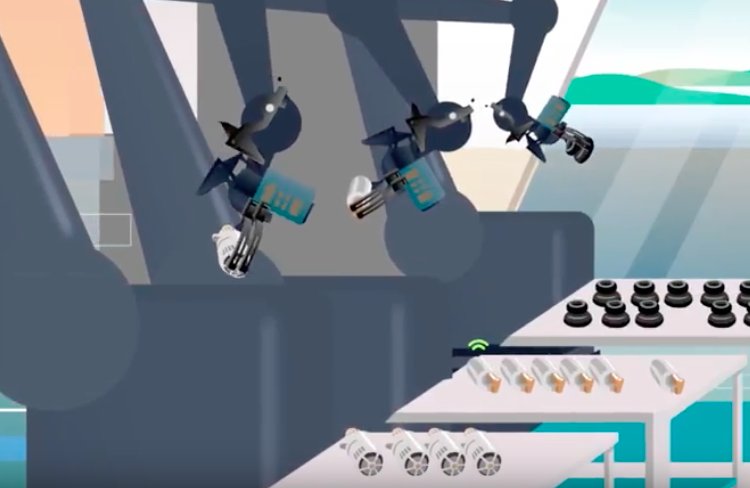Renault Illustrates Its Digital, Connected Plant Of The Future

Renault wants the world to know that it plans to revolutionize the car manufacturing process, but the revolution won't necessarily be visible to anyone walking through the automaker's plant of the future. That is, unless you actually see someone wearing a mechanical exoskeleton to help them lift heavier things.
The core of Renault's take on manufacturing lies with digitizing the process. In essence, the automaker is seeking to build customer-ordered cars on-the-fly through a broader use of connected systems. This will allow greater customization to blend with the mass production afforded by an assembly line. Or at least, that's the theory put forth in the nifty video above that outlines the procedure.
To make this happen, Renault will seek to turn its manufacturing plants into “smart” plants, each with Wi-Fi and specific apps that will basically connect everything and everyone at the facility. That means workers – and especially supervisors – will have tablets to get real-time info on production and make adjustments as needed. Renault has already been working on this, and says tablets can save supervisors up to 90 minutes each day.
With this kind of connectedness, the automaker reckons each car that comes off the line can be unique and personalized to customers. When a buyer places an order, the customizable items are organized and delivered to the assembly line, presumably by the person wearing the cool exoskeleton according to the video. The whole process is traceable, so everyone (including the customer) is in the know on parts and vehicle assembly. Should there be a mechanical or other production-related failure, necessary teams at the digitally connected plant can respond immediately to correct the problem. Once the car is completed, the customer is notified that it’s ready for delivery.
It all sounds great in theory, but it also sounds like a system where buyers order directly from the factory instead of through traditional dealerships. Renault doesn’t have a presence in the United States, where there’s been considerable pushback against manufacturers like Tesla that want direct-to-consumer sales. Many people feel that, in an age of internet shopping, the old-school dealership approach is a very antiquated and annoying way to sell cars. Dealers, obviously, feel otherwise.
If Renault’s plan for a connected, efficient manufacturing and delivery process works out, the days of haggling at the local dealership could well be numbered.
Related News
